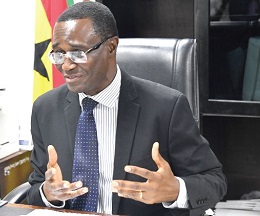
The Ghana Revenue Authority (GRA) says no new taxes have been or are being levied on power consumption in the country as being circulated on social and mainstream media.
Additionally, it has rebuffed claims that the authority had made changes to the benchmark value reduction policy (discount policy) being implemented at the country’s ports.
These were contained in separate statements signed and issued in Accra on Friday by GRA’s Assistant Commissioner in charge of Communication and Public Affairs, Florence Asante.
In the case of power consumption, it said the authority has not nursed the idea of new taxes, especially in the midst of the COVID-19 and that its earlier letter to power producing companies was misunderstood.
“The purpose of the said letter was to draw the attention of the power producers in particular, to the Value Added Tax (VAT) mechanism as it applies to the power sector and to get operators to invoice the supply power to the Electricity Company of Ghana (ECG) correctly”, it said.
It announced that the letter dated May 4, had been withdrawn while the authority would meet power producing companies later to deliberate on the VAT mechanism to the power sector.
It explained that the supply of electricity to a dwelling of up to a maximum consumption level specified for block charges for lifeline units was still exempt from VAT, National Health Insurance Levy (NHIL) and GETfund levy.
It said the ECG already charged VAT, NHIL and GETfund levy on the supply of electricity in excess of lifeline units.
“On the account of their current invoicing policy , ECG over the years has had some challenges claiming input VAT associated with the supply of electricity by power producers, which could have reduced the net tax payable by the ECG to GRA”, it said.
On the benchmark value reduction policy, the statement said, it was being implemented as originally announced by the Vice President Dr Mahamudu Bawumia, last year.
According to the GRA, the document in circulation, was an internal document which analysed the impact of the discount policy on some items as well as local industry, public health and environment.
“This internal analysis was not approved by the Central Government and is thus inapplicable” it said.
The statement thanked trading public and other stakeholders for their cooperation and urged them to continue assisting the authority in its efforts to moblise revenue for national development.
It is recalled that Dr Bawumia, at a town hall meeting in Accra in April last year, announced the policy which would see a 50 per cent reduction in the benchmark values for general imports.
The move, he said, was to reduce the incidence of smuggling and enhance revenue at the country’s ports as well as lead to a 90 per cent reduction in physical examination of containers at the ports.
BY JONATHAN DONKOR







